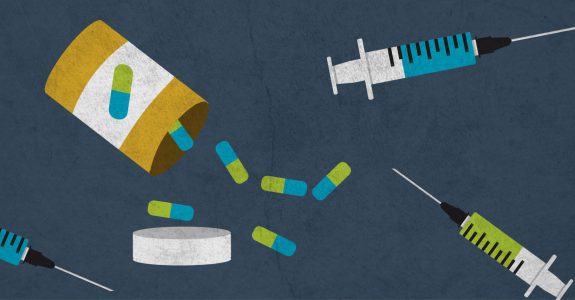Claire Fiddian-Green is the President & CEO of the Richard M. Fairbanks Foundation.
One in three Hoosier adults is obese, and more than two in three are overweight or obese, costing Indiana an estimated $8.5 billion in 2017– most of which is borne by households and the private sector. A report released today by the Richard M. Fairbanks Foundation underscores these findings, showing that obesity has increased dramatically in Marion County and Indiana, becoming one of the most significant preventable causes of morbidity and mortality.
The report shows that in Indiana, obesity rose from 20 percent in 1995 to 34 percent in 2017 – a rate that is the 12th highest in the U.S. In Marion County, 39 percent of adults are obese, up from 26 percent in 2005 and 33 percent in 2012. Marion County’s obesity rate is 11th highest among the largest cities in the U.S., and an alarming 69 percent of Marion County residents are overweight or obese.
Obesity is caused by poor diet and lack of physical activity. In Indiana, 89 percent of adults do not consume the recommended number of fruits, and 91 percent do not consume the recommended number of vegetables. Eighty-three percent of Indiana adults do not get enough physical activity to meet the national guideline of at least 150 minutes of moderate aerobic activity each week.
These patterns of diet and physical inactivity are driven largely by the environments in which people live, work, learn and play. They are compounded in many cases by factors such as income, employment, education, early childhood experiences, stress, gender, and race and ethnicity, all of which can profoundly affect individuals’ experiences, perceptions, behaviors and health outcomes.
Obesity increases the risk of many serious illnesses – including type 2 diabetes, high blood pressure, heart disease, stroke, and certain types of cancer. And individuals who are obese are more likely to face stigmatization, anxiety, depression, and low self-esteem.
Additionally, being overweight and obese is one of the most common reasons for young people to be ineligible to serve in the military, with nearly one in four young adults deemed too heavy.
Policy-based and environmental strategies hold considerable promise for addressing obesity. Proven approaches exist for healthcare providers, employers, K-12 schools, community partners, policymakers and advocates, including:
- Healthcare systems can support healthy weight in patients through a combination of a reduced-calorie diet approach, physical activity recommendations and behavioral therapy.
- Employers can have a major impact on obesity by providing incentives to encourage employees to improve diet and increase physical activity. This could include in-person counseling support delivered through one-on-one or group meetings.
- K-12 schools can promote healthier eating by modifying the cafeteria setting — for example, by offering sliced fruit or using creative names to make healthier foods more appealing.
Along with tobacco and opioid addiction, obesity is one of the most significant health challenges facing Indiana. Reversing course is possible but requires stakeholders across all sectors – from healthcare systems to employers, K-12 schools, policymakers, and other community organizations – to work together to solve this pressing challenge.
Take a look at the report and corresponding materials to find out what you can do to combat the rising rate of obesity in Indiana.
To download the report and see recommended actions for all sectors, please visit: rmff.org/insights/research-reports.
Tagged in: Claire Fiddian-Green, Indiana, obesity, Richard M. Fairbanks Foundation



